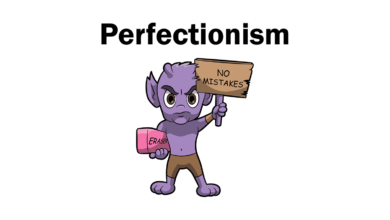پادکست انگلیسی BBC – ژنتیک و شادی

در پادکست انگلیسی BBC – ژنتیک و شادی ، درباره رابطه ژنتیک و شادی صحبت میشه. کشورهای اروپای شمالی مانند نروژ در کل کشورهای شادتری هستند و این نشان میدهد که ژن افراد در میزان احساسات و عواطفشان تاثیر بیشتری دارد. چقدر DNA در این موضوع تاثیر گذار است؟
سوال پادکست انگلیسی BBC – ژنتیک و شادی:
Where did the UK place in the World Happiness Report 2017
a) in the top 10
b) between 11th and 20th
c) after 21st
به پادکست خوب گوش کن تا جواب رو پیدا کنی.
اگر می خوای گوش دادن به پادکست تا حد امکان برات ساده و کارآمد باشه مراحل زیر را دنبال کن:
هر روز به پادکست گوش کن. وقتی براش یه وقت ثابت در روز در نظر بگیری برات تبدیل به عادت میشه و این عادت هرروز پیشرفت میکنه.
پادکستی رو پیدا کن که موضوعش برات جالب باشه. وقتی از خود موضوع لذت ببری یادگیری هم برات لذتبخش میشه.
به پادکستی گوش کن که Transcript یا متن داره. این بهت کمک می کنه تا کلمات و عبارات جدید رو به سرعت در متن پیدا کنی و ساختار انواع مختلف جمله رو خوب یاد بگیری.
پس از گوش دادن به پادکست با متن، در مرحله بعدی سعی کن بدون نگاه کردن به متن این کار رو انجام بدی. این کار مهارت شنیداری رو تقویت می کنه و کمک می کنه تا انگلیسی زبانان بومی را راحت تر درک کنی، حتی اگر خیلی سریع صحبت کنن.
اگه به پادکست انگلیسی گوش کردی و نتونستی کامل متوجه اش بشی، ناامید نشو. پادکست های ESL -English as Second Language بیشماری وجود دارن که برای سطوح مختلف، از ابتدایی تا پیشرفته طراحی شدن. مطمئنا هر روز می تونین یه پادکست مناسب با سطح خودت پیدا کنی.
فراموش نکن که هرچی بیشتر تمرین کنی در اون مهارت رشد میکنی! به قول انگلیسی ها: Practice makes perfect
واژگان کلیدی پادکست انگلیسی BBC - ژنتیک و شادی
| معنی به فارسی | معنی به انگلیسی | واژه |
| چیره شدن | control | dominate |
| بر اساس تجربه شخصی ، اعتقادات یا احساسات و نه واقعیت است | based on personal experience, beliefs or feelings rather than fact | subjective |
| جزء | a part of something making up a larger whole | component |
| نوعی درمان از بیماری | a form of disease protection | inoculation |
| خشک | satisfied and wanting nothing | content |
| خوشبختی | a feeling of being warm comfortable and safe | cosiness |
Dan
Hello and welcome to 6 Minute English– the show that brings you an interesting topic, authentic listening practice and six new items of vocabulary. I’m Dan…
Neil
And I’m Neil. In this episode we’ll be discussing if happiness is genetic
Dan
How happy would you say you are Neil?
Neil
I’m pretty happy I think. Why do you ask?
Dan
Well, in March this year the UN published its fifth world happiness report.
Neil
Is that the one that ranks all of the countries based on how happy they are?
Dan
You’ve heard of it then. Over all there are 155 countries included, and Norway came top of them all, overtaking Denmark, which was the leader for the years 2012 to 2016.
Neil
Well what about the UK?
Dan
Ah, well that’s this week’s questions, isn’t it? Where did the UK place?
a) in the top 10
b) between 11th and 20th
c) after 21st
Neil
Well, I’m going to say c) after 21st
Dan
Ok, you know the drill. No answers until the end of the show.
Neil
So, Norway, eh? And Denmark the previous year? They’re neighbours!
Dan
Yes. In fact, for the last 5 years, the results have been pretty much the same. Nordic countries tend to dominate the top of the table.
Neil
Dominate meaning ‘control’. Ok, well how are the results decided?
Dan
It’s very simple. They ask 1000 people in each country a single subjective question.
Neil
Subjective means ‘based on personal experience, beliefs or feelings’. …Well, what’s the question?
Dan
Imagine a ladder, with steps numbered from 0 at the bottom to 10 at the top. The top of the ladder represents the best possible life for you and the bottom of the ladder represents the worst possible life for you. On which step of the ladder would you say you personally feel you stand at this time?
Neil
That’s actually quite simple.
Dan
Yep. The Nordic countries all score an average close to 7.5 out of 10.
Neil
So we have a number of neighbouring countries which all claim to be extremely happy. There must be a connection….is it the weather?
Dan
Well, that’s a logical conclusion, but there is another idea. I’ll let Professor Andrew Oswald from the University of Warwick explain.
INSERT
Professor Andrew Oswald, University of Warwick
We think that there is a genetic component, in part, to why the Danes do so well coming so regularly at the head of happiness international league tables. It does appear from the data that the Danes have the smallest amount of the, you might say, dangerous, short kind of genetic pattern. So they may have a kind of inoculation against the possibility of depression.
Neil
So, professor Oswald mentioned there is a genetic component, or part, to Danish DNA which gives them an inoculation, or illness protection, against depression and sadness.
Dan
Yep. All of the Nordic countries have a similar make-up.
Neil
But he said ‘in part’. That means it doesn’t explain everything. So, there’s something missing.
Dan
There’s no fooling you! Michael Booth has written a book about Nordic happiness. He has another theory.
INSERT
Michael Booth, Author
There are so many reasons why the Danes are happy, why they’re content that have nothing to do with DNA. Of course they’re happy! They’re rich! They’re sexy! They’re funny! They don’t work that much!
Neil
Ah. So being rich, funny, sexy and not working much is why they are content, meaning ‘satisfied’. That sounds a bit like you, Dan.
Dan
I can’t publicly comment on that Neil, I’m sorry! But there is one more piece we’re missing. Hygge. It’s a loanword and only just appeared in the British dictionaries. We don’t have a direct translation, but it basically means cosiness.
Neil
Cosiness, meaning ‘warm, comfortable and safe’.
Dan
Yes. Danes love simple comforts. A warm cosy room, some drinks, some candles and a fire, and they are happy. Maybe that’s the secret.
Neil
Well, the secret to my happiness right now is finding out if I was right in the quiz.
Dan
Oh yes! I asked: Where did the UK place in the World Happiness Report 2017
a) in the top 10
b) between 11th and 20th
c) after 21st
Neil
I said c) after 21st
Dan
And I’m afraid you’re wrong my friend. We placed b) between 11th and 20th. We were actually 19th.
Neil
Well, let’s make our listeners happy by going through the vocabulary.
Dan
Ok. First we had dominate. If you dominate something or someone, you control it. It’s quite an aggressive word. You wouldn’t use it for people much. But, give us an example, Neil.
Neil
You can talk about a team dominating play in a sport. Next we had subjective. If something is subjective it is based on personal experience, beliefs or feelings rather than facts, which are objective. What type of things are subjective, Dan?
Dan
Oh, it’s our opinions of art, music, jokes, food. You know, I like sausages and ice-cream but no one else does!
Neil
That’s because it’s disgusting!
Dan
Then we had component. A component is part of something that makes up a larger whole. Televisions and computers have many components in them.
Neil
And a person can be an essential component in a team, like a goal-keeper in football. After that was inoculation. An inoculation is a form of disease protection. It is a synonym of….Dan?
Dan
Vaccination. I went on holiday last year and had to have my inoculations updated. Then we had content.If you are content, you are satisfied and want nothing. What makes you content, Neil?
Neil
A warm sunny day in my garden with a good book. And finally we had cosiness. Cosiness comes from cosy, which means ‘warm, comfortable and safe’. Where’s cosy for you Dan?
Dan
Oh easy. On a freezing cold day, it’s tucked up in bed with a nice cup of tea. And that’s the end of today’s 6 Minute English. Please join us again soon!
Neil
And we are on social media too, of course – Facebook, Twitter, Instagram and YouTube. See you there.
Both
Bye!
امیدوارم از پادکست انگلیسی BBC – ژنتیک و شادی لذت برده باشید.
گوش دادن به پادکست روش خوبی برای تقویت مهارت شنیداری و هم چنین یادگرفتن کلمات در بستر یک موضوع خاصه که این به تقویت مهارت مکالمه انگلیسی نیز کمک زیادی می کنه.









دمتون گرم